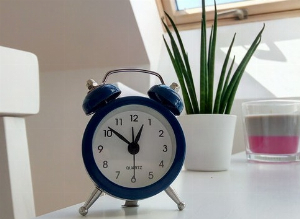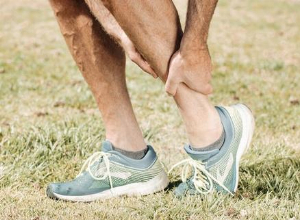What is the psychological impact of chronic pain? Carenity members share their experience!
Published 29 May 2021 • By Candice Salomé
Whatever its cause, with time, chronic pain can have an impact on a person's mental wellbeing, causing insomnia, depression, stress, anxiety, fatigue, social isolation and more. In order to evaluate the real impact of chronic pain, we launched a survey from April 28 to May 17, 2021 to which 597 members of our French, UK and American communities responded!
What is the impact of chronic pain on the everyday lives of Carenity members? What is the psychological impact of this pain? What do Carenity members do to alleviate it?
Find out more in our article!
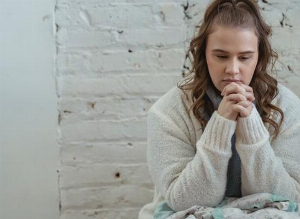
When pain becomes chronic, it not only causes significant physical discomfort but also gives rise to mental distress which increases over time. Thanks to our study, we will be able to address the real impact that it has on the daily lives of Carenity members.
597 members have responded to our study in France, the UK and the United States
We have conducted a study from 28 April to 17 May 2021 in which 597 members of the Carenity community in France, the UK and the United States have participated. We asked them questions about the impact of chronic pain on their daily lives.
The majority of respondents are aged from 41 to 60 years old (55%) and more than 60 years old (26%).
They are affected by the following chronic diseases:
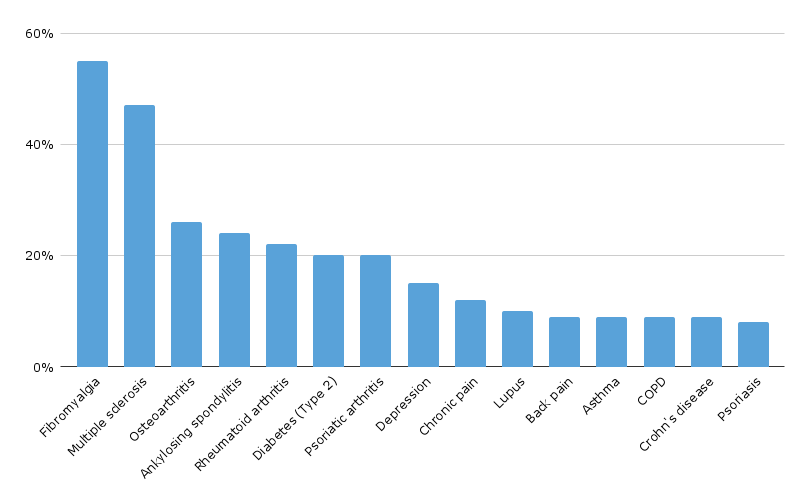
63% of respondents are affected by one single pathology. Nevertheless, 15% of those among them have two and 9% have three.
79% of respondents feel pain everyday
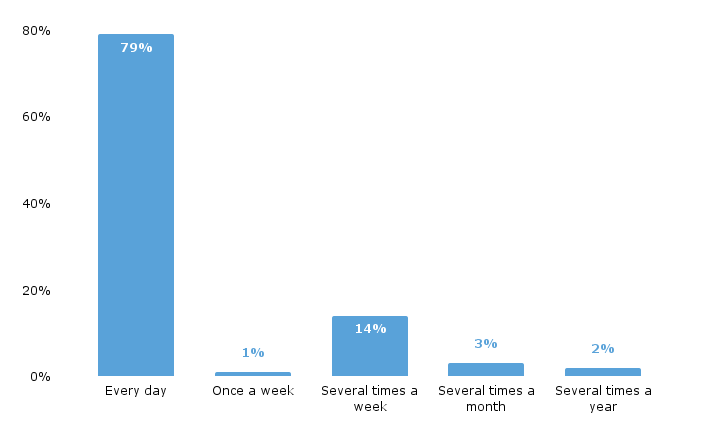
79% of respondents are affected by chronic pain on a daily basis while 14% are affected several times a week.
Chronic pain has a real impact on the everyday lives of Carenity members
Chronic pain prevents 24% of members from doing what they love. For 22% of respondents, it has a significant impact on self-care and 17% can no longer work.
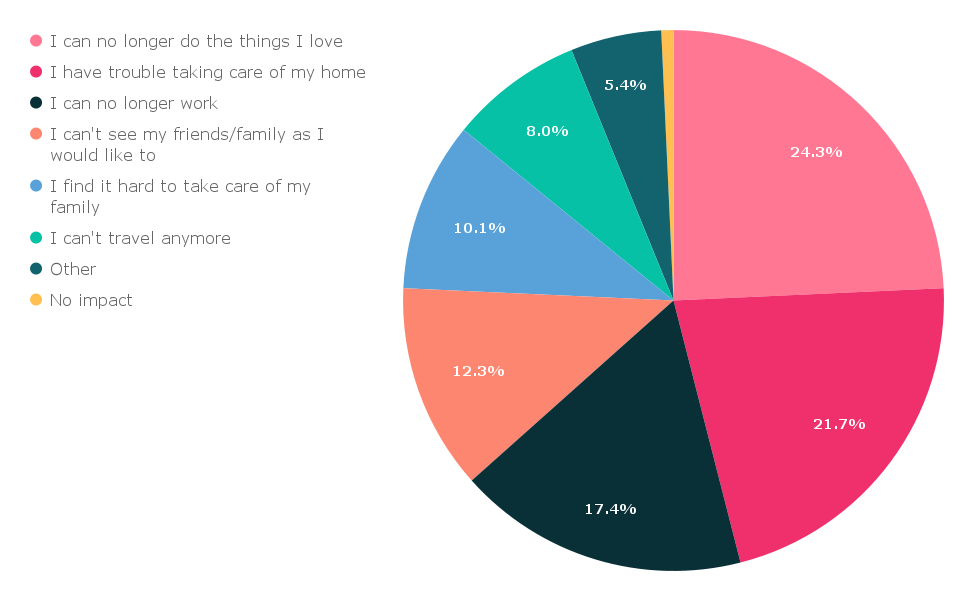
Chronic pain also has a strong psychological impact on respondents. Here is what pain does to members:
 Anxiety (91%)
Anxiety (91%)
 Insomnia (60%)
Insomnia (60%)
 Fatigue (59%)
Fatigue (59%)
 Nervous tension (59%)
Nervous tension (59%)
 Isolation (46%)
Isolation (46%)
 Depression (45%)
Depression (45%)
 Low libido (42%)
Low libido (42%)
Members use a variety of methods to alleviate pain
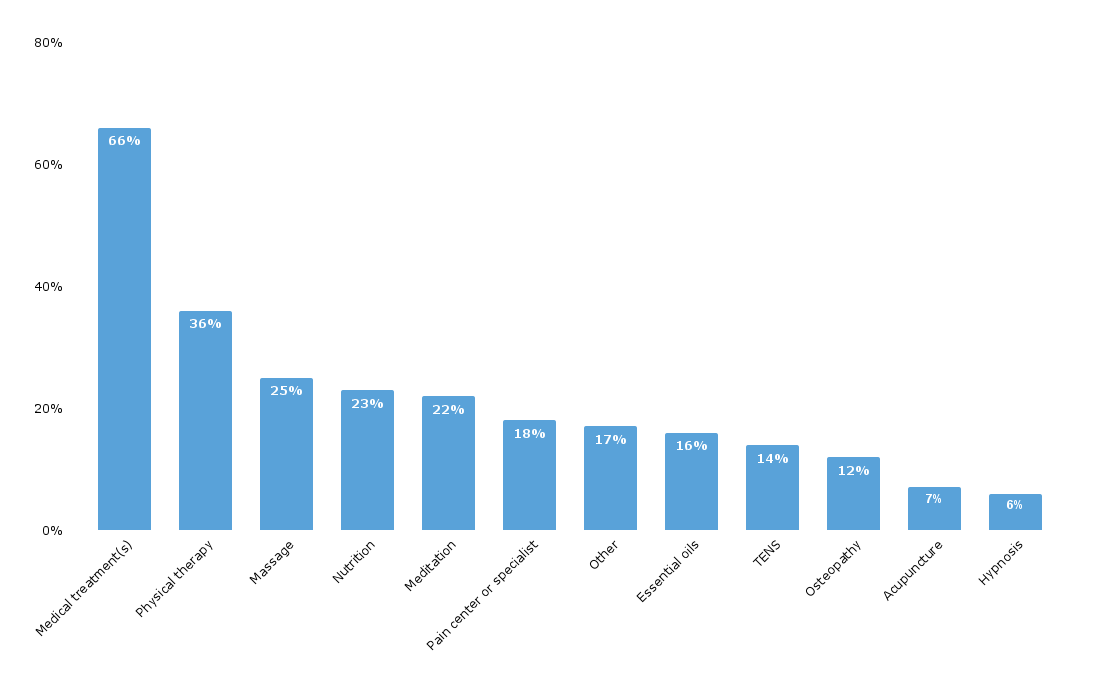
66% of respondents take pain medication. Nevertheless, a large proportion use more natural methods: 25% use massage, 22% do meditation, 16% use essential oils, 7% do acupuncture and 6% do hypnosis.
Among those members who have responded "Other", we find: sport and naturopathy.
Some advice to live better with daily chronic pain
The large majority of this pain has a physical origin. Yet psychological factors can influence the perception of pain and sometimes, the disability is linked to pain. Anxiety and depression can prevent patients from controlling their symptoms well and therefore to go about their jobs and normal activities.
In fact, patients suffering from chronic pain, knowing the pain will reappear, can become anxious to this concept and then predict the return of their pain. If these same patients come to understand that a worsening of the pain does not strongly indicate new lesions in their body then, this can relieve their anxiety and therefore have less pain.
Here are some techniques which you will allow you to live better with chronic pain:
Meditation and mindfulness
It has been found that meditation and mindfulness were beneficial in the reduction of all types of pain. These methods help to better manage stress, reduce the risk of depression, allow you to sleep better and increase overall wellbeing.
<<A guided 10-minute meditation for calm and relaxation>>
Hypnosis
Hypnosis has a numerous benefits for the body and mind. You can choose to consult a therapist or opt for self-hypnosis by training through books or apps.
The benefits are the same: hypnosis reduces pain, increases relaxtion and sleep and helps reduce emotional issues.
Anti-inflammatory foods
depression and pain are associated with a high level of inflammation within the body. If you opt for a diet based on anti-inflammatory food such as unprocessed products, fruit and vegetables, oily fish... chronic pain is likely to decrease.
Adapted and progressive exercise
We may sometimes be scared to move for fear of being in pain. However, it is most often the case where a decrease in physical activity which leads to "abnormal" positions and contributes to the increase of pain. In addition, during physical activity, the brain secretes endorphins which act on the pain and improve sleep and mood. It is necessary to start in a very progressive way to avoid injury starting with 5 to 10 minutes every day.
Did you find this article helpful?
Don't hesitate to share your story and reactions in the commentary!
Take care!
Sources :
Carenity study carried out from 28 May to 17 May 2021 on 597 members in France, the UK and the United States.

 Facebook
Facebook Twitter
Twitter
